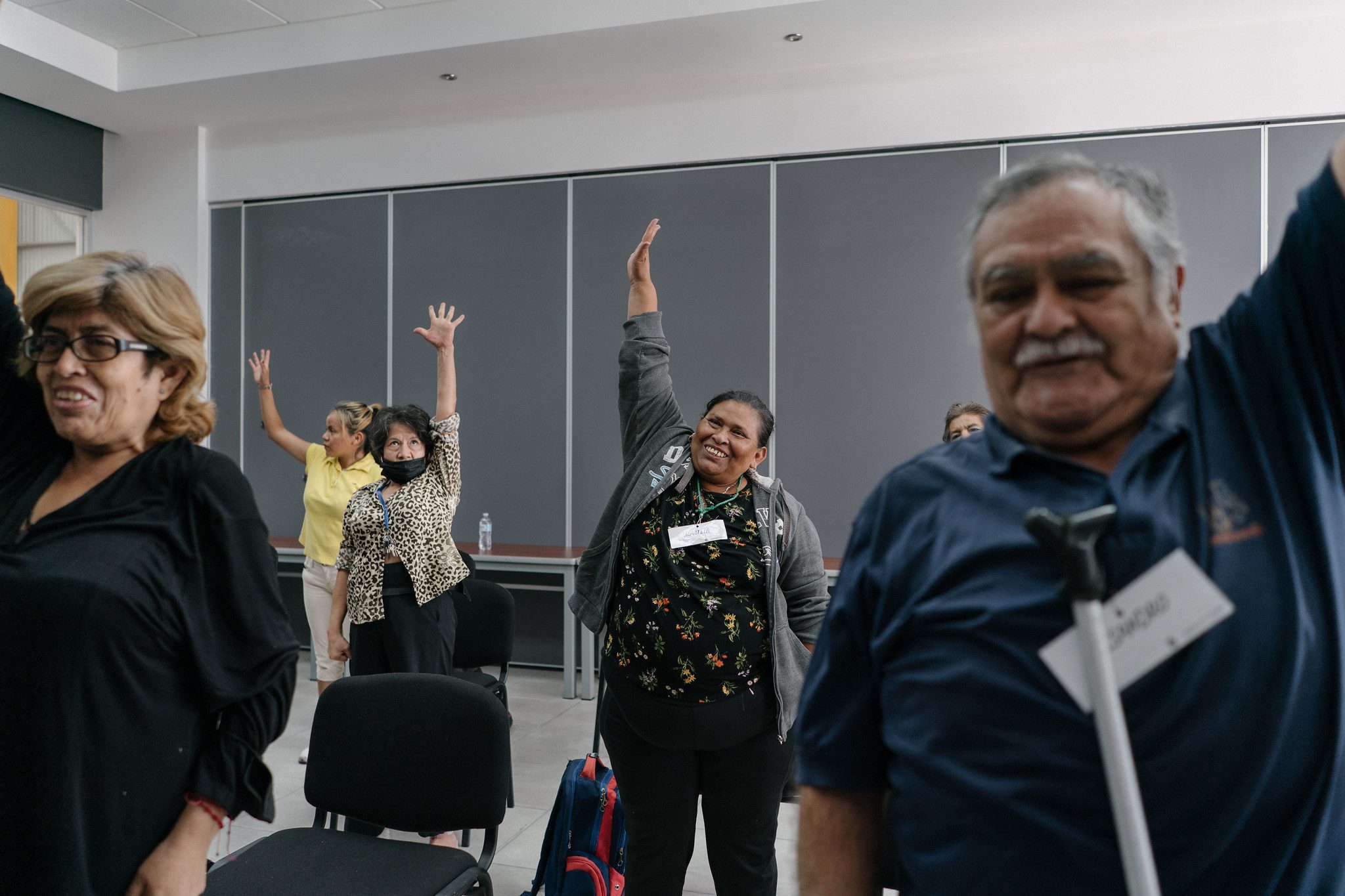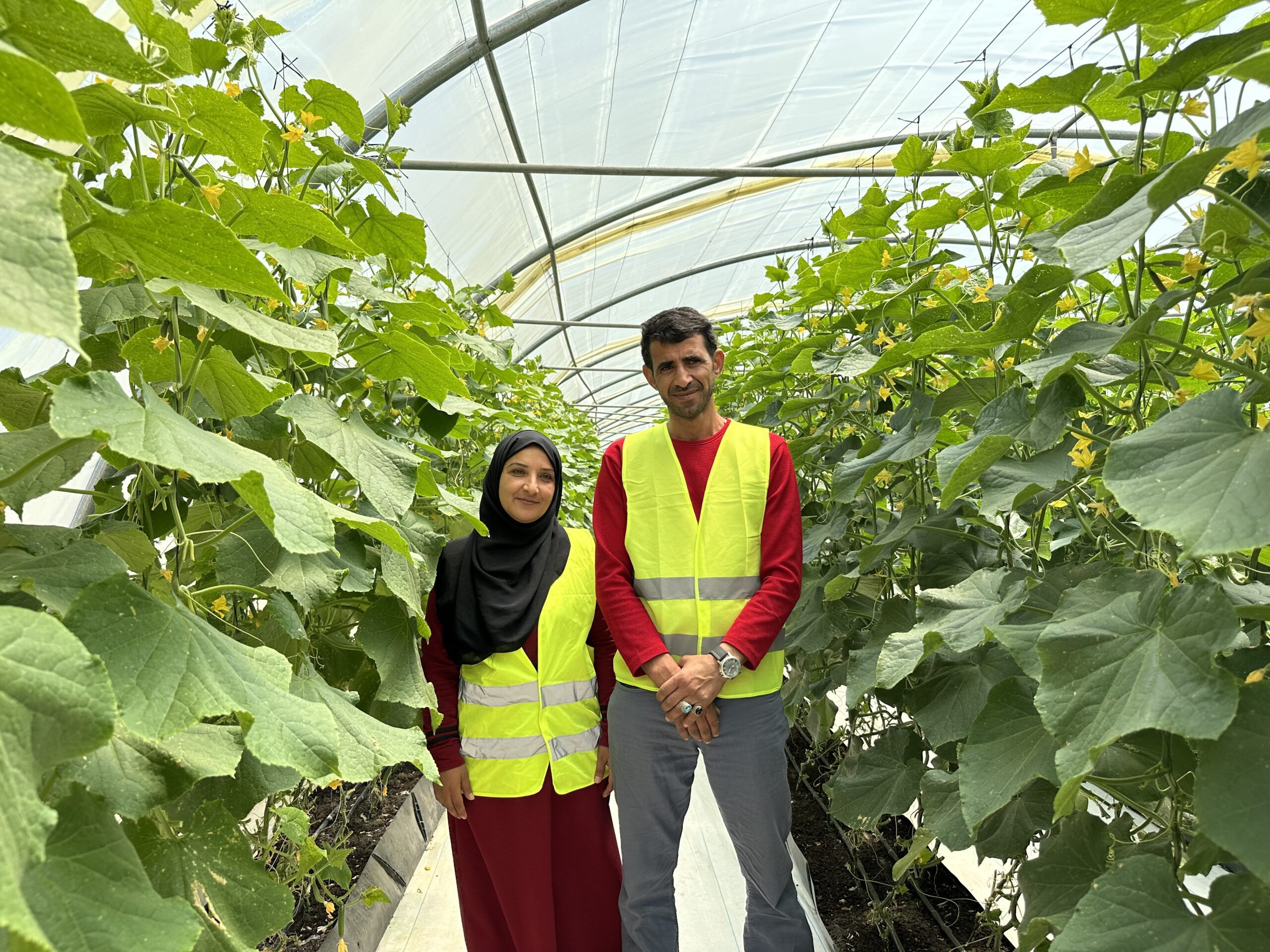
Food banks are successful because they are rooted in, responsive to, and respectful of local contexts. With local leaders in the driver’s seat, this efficient model increases food access and fills gaps when social protections are lacking or absent.
Social protection consists of services, systems, or organizations—such as job training, affordable medical care, or senior centers—that help people prevent, manage, and overcome adverse situations or crises. Governments may provide these services in some countries, but they’re not always sufficient: Half of the world still lives without social protections, perpetuating the cycle of hunger and poverty.
This is where nongovernmental organizations, nonprofits, and social service agencies come in. They can help fill the gaps, providing assistance when government services are unavailable. As community-led organizations, food banks help make those organizations and agencies even stronger, while calling for strong social protection systems in the communities where they serve.
Food banks often work through partner organizations, such as schools, food pantries, community kitchens, or shelters. While these organizations are not always dedicated hunger relief organizations, they may provide much-needed food for their communities alongside specialized services such as housing, employment, or education.
The food services provided by these local organizations and agencies are often enormously helpful; however, they can account for up to 30 percent of an agency’s budget, diverting already slim financial and staff resources from the services the organization is primarily designed to provide.
Enter: food banks. With expertise in food sourcing and distribution, food banks can:
Explore six examples of how GFN food bank partners in Africa, Asia, and Latin America are stepping up to provide so much more than food – they are creating healthier, more resilient communities.
In Jordan, GFN member Tkiyet Um Ali has been partnering with nonprofit Dar Abu Abdullah since 2018 to address one of the root causes of hunger in the country: unemployment. The three-phased program particularly addresses unemployment for women and youth in vulnerable circumstances, by teaching technical skills and expanding access to career-focused training opportunities.
The employment program, implemented between 2020 and 2022, was designed with two job tracks: wage-based employment and self-employment. Through both tracks, program participants were set to build upon their technical skills and work toward becoming more self-reliant.
The wage-employment track connected over 2,000 participants to the labor market as it created job opportunities through employment agreements and written commitment letters from employers.
The other track, self-employment, offered opportunities to establish microenterprises and home-based businesses. This track focused on three central sectors: agriculture, food processing, and handicrafts.
In the agricultural focus, participants learned eco-friendly farming techniques through a dedicated hydroponic project, growing crops, through farms established by Dar Abu Abdullah.
“I had no knowledge of hydroponic farming before this project, but now I’ve learned how to tell if a plant is healthy, if it needs spraying, or if the fruit is good,” shared Nahed Al-Zaboun, a hydroponic farming participant.

The farms produced sweet peppers, baby cucumbers, broccoli, cherry tomatoes, and red cabbage, totaling sales worth around $32,485 (23,000 JOD). More than 100 participants generated income through their hydroponic farming endeavors.
Al-Zaboun’s life changed after learning about hydroponic farming through the employment program. A mother of five, she faced challenges making ends meet before she joined the ADDAR farm in Bab Amman, Jordan.
Through Nahed Al-Zaboun’s newfound skill, she and her husband are now able to provide their family with the support they previously found difficult to provide.
“We couldn’t even give our kids pocket money for school, and now we can,” she said. “This project has improved our lives in ways we never thought possible.”
In Mafraq, Jordan, 350 women gathered at Dar Abu Abdullah’s workshop to learn sewing techniques as a traditional handicraft. The women of this workshop produced an astounding total of about 1.2 million textile pieces, earning over $774,000 altogether.
With nearly 5,000 individuals trained during the program’s pilot, Tkiyet Um Ali sees continued growth potential in its partnership with Dar Abu Abdullah, as the unified approach addresses the needs of communities facing vulnerability.